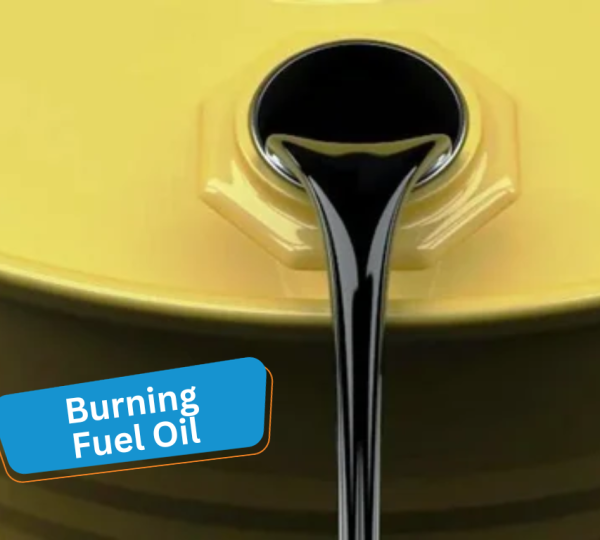
- Fuel Oil is a medium Black coloured fuel, either distilled or residual fraction of various oils that is extracted while distillation. This fuel is free flowing in nature.
- Fuel Oil is widely used by various industries in their manufacturing activities for the purpose of generation of heat and power.
- The Fuel Oil consists of medium length chains of hydrogen and carbon mainly alkanes, cycloalkanes, aromatics and oils. Basically, Fuel Oil is termed for medium commercial extracts from crude oil.
- Fuel Oil is largely an industrial fuel. It acts as a key ingredient in the generation of electricity and heat in a number of production units. It has been used since a long time for such purposes and has gained much importance and inevitable value.
- LDO-1 Segments: Hot mix & Construction (Regular)
- LDO-2 Segments: Hot mix & Construction (Special)
- Boiler Fuel
- Furnace Oil (FO)
- Residual Fuel Oil (RFO)
- Carbon Black Feed Stock (CBFS)
- Bio-Diesel Residue
- Pitch Oil
- MTO
Burning fuel oil refers to a petroleum-based liquid fuel that is burned in furnaces, boilers, or engines to generate heat or power. It includes types like heavy fuel oil, light fuel oil, diesel, and residual fuels used in industrial, marine, and heating applications.
The main types include Heavy Fuel Oil (HFO), Marine Fuel Oil (MFO), Light Fuel Oil (LFO), Diesel, Gas Oil, and Residual Fuel Oil (RFO), each differing in viscosity, sulfur content, and application.
It is commonly used in power generation plants, marine engines, industrial boilers, heating systems for buildings, and transportation machinery like trucks and agricultural equipment.
Burning fuel oil can emit sulfur dioxide, nitrogen oxides, particulate matter, and greenhouse gases contributing to air pollution and climate change. Low-sulfur fuels and stricter regulations aim to reduce these impacts.
Heavy fuel oil is thicker, more viscous, and requires heating before combustion. Light fuel oil is cleaner-burning, less viscous, and used in smaller-scale heating and engines.
Proper storage, handling procedures to avoid spills, use of flame-retardant containers, and adherence to regulatory guidelines for flammable materials are essential.
Certain fuel oils like diesel or gas oil are used for construction machinery, but heavy fuel oils are not suitable for on-road vehicles due to viscosity and handling requirements.
Yes, alternatives like natural gas, electric heating, biofuels, and cleaner energy sources are increasingly adopted to reduce environmental impacts.
Progressive Company
We are progressive company
Certified Products
Laboratory certified Products
Environment Safe
Environment safety certified Products
Stay Connected


